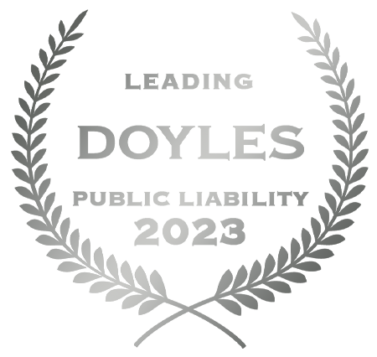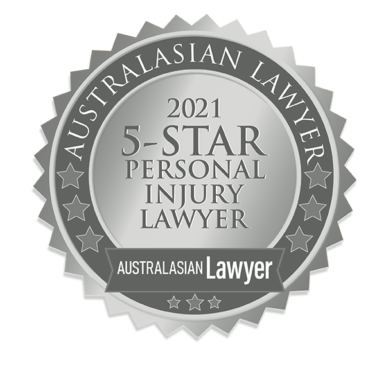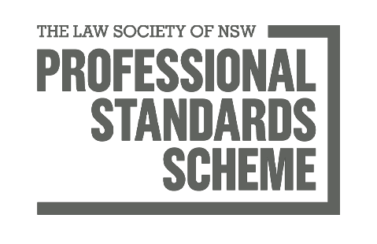
Personal Injury Claims - Your Guide.
A personal injury claim can provide you with financial compensation when you need it most. But unfortunately, many people risk missing out because they fail to claim everything they’re entitled to.
If you’re about to make a claim you may be wondering where to start, how much you can claim, and how to make sure your claim succeeds. Or if you’ve already made a claim, you may be unsure if you’re getting your full entitlements.
This guide will help you claim your full entitlements, including any lump sums. It explains in simple terms everything you need to know about personal injury claims and how to make sure your claim goes smoothly.
Expert tips: Keep an eye out for expert tips throughout the article, from our industry leaders here at Australia’s largest specialist personal injury firm.
What is a personal injury claim?
A personal injury claim is a claim for compensation, usually from an insurer, to cover any financial losses you suffer as a result of a personal injury. A personal injury can be a physical or psychological injury caused by an accident, often as a result of someone else’s negligence. Personal injuries can cause financial hardship through time off work and the cost of medical treatment.
But personal injury claims really are very personal. Your situation is unique, and so is your claim. So, while this article provides a good starting point for making a claim, it’s important that the full impact your injuries have had on your life is taken into account, and your claim isn’t simply ‘processed’. Read on to learn more about this, and how to make sure you claim your full entitlements.
Personal injury claims – what you need to know.
Here are the four most common situations we come across with personal injury claims:
1. You’ve been injured and you’re about to make a claim.
If you’re about to make a claim, this article is a great place to start. It explains how to find out what you’re entitled to and how to make a successful claim.
2. You’ve been injured but you’re not sure if you qualify for a claim.
If you’re not sure whether your accident or injury qualifies for a claim, or if you’re too late to claim, it’s definitely worth checking. For example, there are some situations where you can claim for injuries that happened many years ago.
3. You’ve made a personal injury claim, but you’re not sure if you’re getting everything you’re entitled to.
This is a very common situation. Many people come to us with questions about their existing claims and are surprised to learn about additional amounts such as lump sums they can claim.
4. You’ve had part or all of your claim rejected.
This is also a common situation, and unfortunately, many people simply accept a claim denial without questioning it. But challenging a rejected claim might be much easier than you think. Read on to learn more about this.
How much can I get from a personal injury claim?
This is the first question many people ask. And the key point to understand here is – it all depends on how you make your claim. If a claim is simply ‘processed’ without taking your full personal situation into account, it’s very likely you’ll miss out on entitlements. We’ve covered this in a lot more detail in the following sections.
But in general, the amount you can claim for a personal injury ranges from thousands of dollars to millions of dollars. Your final settlement amount will depend on:
- The extent of your injuries
- Your age and overall health
- Your occupation and income prior to the accident
- How your injuries affect your ability to work
For minor injuries that only require a short time off work and a relatively short recovery time, your personal injury claim settlement is likely to be in the tens of thousands of dollars. For more serious injuries that require surgery, a long period of time off work, or that prevent you from returning to work, personal injury compensation can run into the hundreds of thousands or even millions of dollars.
We’ve covered personal injury claim payouts in more detail later in this article.
Expert tip: To get the maximum personal injury claim settlement, it’s very important that all your injuries and the full impact on your life are considered. At Law Partners, we don’t simply ‘process’ claims; we take time to get to know you personally, ask all the right questions and claim for all your physical and psychological injuries. This approach results in a much higher settlement amount.
Do I qualify for a personal injury claim?
Ask yourself these three questions:
- Have you been injured in an accident, or harmed as a result of negligent medical treatment?
- Have you had any time off work to recover?
- Have you had any treatment or surgery as part of your recovery?
If you answered yes to these questions, then it’s likely you can make a personal injury claim.
Expert Tip: With some injuries, it can be hard to pinpoint the cause. For example, a back injury may be caused by years of activity, including (say) sports as well as heavy lifting at work. In a case like this, you may still qualify for a claim, on the basis your job has contributed to your injury. So it’s definitely worth finding out if you can claim.
Find out how much you can claim.
Get startedCall 13 15 15 or chat to us now for free advice
Chat nowWhat types of personal injuries qualify for compensation?
Personal injuries that qualify for compensation in NSW generally fall into one of the four categories in the table below. If you were injured in Victoria, refer to our personal injury claims guide for Victoria.
| Claim Type | Description |
|---|---|
| Motor Vehicle Accident Injuries | Including injuries to drivers, passengers, cyclists and pedestrians. This also includes passengers on public transport. In NSW, personal injury compensation is paid through the CTP (Compulsory Third Party) insurance scheme. You can read more about this in our CTP Claims Guide. |
| Work Injuries | Workers compensation is available to employees and sub-contractors who’ve been in an accident or sustained an injury at work, whether they’re at fault or not. Read our Workers Compensation Payout Guide for more information. |
| Injuries in Public Places and Buildings | For example: slips, trips and falls, injuries from falling objects, food poisoning and injuries from faulty equipment. For more information, see our Public Liability Claims Guide. |
| Medical Negligence | Including surgical mistakes, doctor and hospital negligence, birth injuries and defects, defective implants, misdiagnosis and delayed diagnosis. For more information, read our Guide to Medical Negligence Compensation. |
Both physical and psychological injuries can qualify for a personal injury compensation claim.
Expert Tip: One type of work injury that’s often overlooked is wear and tear injuries. These are injuries that happen over a long period of time and are not caused by a specific accident. However, these injuries can qualify for a personal injury claim.
What can I claim for in NSW?
When you make a personal injury claim in NSW, you might be eligible to claim for:
- Lost wages resulting from time off work
- Medical and care expenses
- Travel expenses
- Pain and suffering*
- Future losses (wages you would have earned if you hadn’t been injured)
Expert tip: A common reason people miss out on entitlements is only claiming for their obvious injuries. But if your injury causes other life complications (for example, side effects of pain medication) you can claim for these complications too. So it’s only by assessing your situation thoroughly and looking at every area of your life that you can be confident you’re claiming everything you can.
*Pain and suffering refers to money that’s paid to you to cover the harmful impact the injury has had on your life, physically and mentally. It’s also referred to as general damages or non-economic loss.

The personal injury claims process – what you should know.
When you make a personal injury claim it’s likely your compensation will be paid by an insurer. But the insurer has lawyers on its side and will look for ways to reduce your compensation payment. For example, an insurer may argue that your injury was a pre-existing condition and doesn’t qualify for compensation. Or, if you’re claiming for a car accident injury, they may argue that you were partially at fault for the accident, and this could reduce your compensation.
This is where a personal injury lawyer makes a big difference – your legal team will build the evidence and argue your case, often resulting in a much higher payout than the insurer’s initial offer.
The personal injury claims process – key steps.
Once you’ve chosen a personal injury lawyer, there are essentially four steps to the claim process:
| Claim Stage | Description |
| Claim assessment | Your personal injury lawyer will assess your situation and determine whether you have a valid injury claim, then provide you with advice on how to proceed. Part of this process is to identify the insurer. |
| Claim preparation | This includes gathering detailed evidence to back up your injury claim, including medical reports to show evidence of your injuries. |
| Claim settlement | Once your personal injury claim has been submitted to the insurer, if the insurer accepts your claim it will generally offer you a settlement payment. Your personal injury lawyer will advise you on how much you should accept. |
| Dispute resolution/ litigation | If the insurer denies your injury claim or you can’t come to a settlement agreement, you have the option to take the matter to court – this is known as litigation. |
What’s a ‘no win, no fee’ personal injury lawyer?
If you choose a no win, no fee personal injury lawyer you’ll only need to pay them if you win.
But it’s important to note that not all no win, no fee lawyers are the same. Some personal injury firms expect you to pay some of their costs upfront, and many (including some of the large firms) expect you to pay their costs if they’re unsuccessful. For more information read our guide to no win no fee lawyers that explains in detail how to avoid fee traps.
We believe the Law Partners no win, no fee guarantee is the best and fairest agreement in Australia and one of the reasons we’ve grown to become the largest specialist personal injury firm in Australia.
How long do I have to submit my injury claim in NSW?
The table below lists the time limits for personal injury claims in NSW.
However, even if your injury happened outside the claim time limit, you may still be able to claim if you’ve only just become aware of your injury or what caused it. A good example of this is wear and tear injuries, mentioned earlier in this article.
| Claim Type | Time Limit for Personal Injury Claims |
|---|---|
| Workers Compensation |
|
| Car Accident Injury |
|
| Public Liability Claim |
|
| Medical Negligence |
|
How long does it take to settle personal injury claims in NSW?
Many NSW personal injury claims settle within 9 to 18 months, however, some can take longer.
The amount of time it takes to settle your claim is determined by:
- How long it takes for your injuries to stabilise so that they can be assessed by medical experts
- Whether the insurer accepts liability for your injuries
- Whether you reach an agreed settlement with the insurer quickly
- If you don’t reach a settlement with the insurer and need to litigate the matter, it can take considerably longer than 18 months
Expert tip: The fastest way to get your personal injury compensation payout is to present a strong case that’s more likely to be settled out of court. The insurer that’s paying your claim is much more likely to agree to a good settlement for a thoroughly prepared claim.
At Law Partners, we have a strong track record in negotiating substantial settlements for our clients, and we win over 99% of our cases. Reach out to one of our Sydney TPD specialists to help with your claim.

How are personal injury claims payouts calculated?
As a general guide, personal injury settlements can include:
- The amount of money you lost through time off work
- The medical and care expenses you incurred
- Your travel expenses to and from medical appointments
- The cost of home help you needed because of your injuries
- Future lost wages
- An amount to cover your pain and suffering
Of course, the calculation varies depending on how your injuries occurred and the extent of your injuries, but the general idea is that a personal injury settlement compensates you for your losses. Future losses and pain and suffering payments generally apply to more serious injuries.
How much is the average personal injury claim?
Here’s an indication of the amounts paid out for personal injury claims in NSW:
- Motor vehicle accidents: According to SIRA (the State Insurance Regulatory Authority), in the 12 months to April 2024, there were 12,945 motor accident injury claims reported in NSW and $1.44 billion was paid out in benefits and lump sums. That’s $111,240 paid out for every new claim reported.*
- Workers compensation: In the 12 months to February 2024, 113,709 workers compensation claims were submitted in NSW, and $5.8 billion was paid out in benefits and lump sums. That’s $51,007 paid out for every new claim submitted.*
*Based on SIRA Open Data, May 2024
For more information on this, read our personal injury compensation payout guide.
How much do you get for pain and suffering?
The total amount payable for a pain and suffering claim is indexed each year and the current maximum is $722,000*.
Pain and suffering is a payment for the harmful impact the injury has had on your life, physically and mentally. It’s also referred to as general damages or non-economic loss.
Here are some examples of pain and suffering payouts our lawyers have claimed on behalf of our clients:
- $92k for a 70-year-old injured in a trip and fall at a hardware store.
- $282k for a 5-year-old attacked by the neighbour’s dogs.
- $494k for a 24-year-old casual construction worker injured on the job.
You can read all the details about these three payouts in our pain and suffering compensation calculator article.
In NSW you may be eligible for a pain and suffering lump sum if you’ve been seriously injured in a car accident, an accident in a public place, or through medical negligence. Emergency service workers injured on the job may also be able to claim pain and suffering.
If you want to know if you qualify for a pain and suffering lump sum, you can call 13 15 15 and get free legal advice. Law Partners has TPD lawyers in Melbourne and Sydney ready to help.
*As of February 2024
Call 13 15 15 or chat to us now for free advice
Chat nowFind out how much you can claim.
Get startedAre lump sum settlements taxable?
No, any lump sum personal injury compensation you receive isn’t taxable and doesn’t need to be declared as taxable income. However, if you invest your lump sum then the gains you make on your investment could be taxable. If you’ve received a lump sum personal injury claim payout, it’s a good idea to seek professional advice on the best way to invest your money and any tax implications.
Will my claim affect my Centrelink entitlements?
Yes, your personal injury compensation may affect the amount of Centrelink payment you or your partner receives. If you receive a compensation payment, Centrelink may have to adjust their payments to you. This is to prevent people from being doubly compensated – (ie) receiving an income supplement from Centrelink and then receiving income reimbursement as part of a personal injury claim.

How do I make a successful personal injury claim?
Here are the steps to a successful personal injury claim:
| Step | Details |
| Keep evidence | Keep as much evidence as you can from your accident. Photos, details of witnesses, contact details of any other people involved (for example, the other driver if you’ve had a collision). |
| Keep medical records | Keep very thorough medical records – medical reports, receipts for all treatment and travel expenses to and from medical appointments. |
| Don’t rush into settlement | Don’t accept an early settlement offer from an insurer. Your injuries could take time to stabilise and if you accept an early settlement offer you might not be fully compensated, especially if your injuries worsen or lead to other issues over time. |
| Get legal advice | Talk to a no win no fee lawyer who specialises in your claim type. You can submit your own claim without using a lawyer, but you’ll have a better chance of success and you’re likely to get a higher compensation payout with the right lawyer on your side. |
Expert tip: If you proceed with a personal injury lawyer, tell them absolutely everything – don’t hold back. Remember that your injury could lead to other issues over time, and that will increase the amount of compensation you’re entitled to. Choose a lawyer who takes time to really get to know you and asks a lot of questions – it’s only by getting to know you personally that a lawyer can claim everything you’re entitled to.
At Law Partners, we win over 99% of our cases, and we pride ourselves on our more personal approach and our reputation for winning more compensation for our clients.
What do I do if my claim is denied?
The first step is to question the insurer’s decision. When they deny a claim, insurers are required to provide a written explanation of their decision. If you believe their decision is wrong, then you can make a written submission explaining why it’s wrong and request a review. Where disputes can’t be resolved, you can get advice from the government body that regulates the relevant insurance scheme – for example, SIRA (the State Insurance Regulatory Authority) regulates motor accident CTP insurance and Workers Compensation insurance in NSW.
Keep in mind that the insurers have lawyers on their side, so before you make any decisions about disputing an insurer’s denial, it’s highly recommended that you speak to a specialist personal injury lawyer to find out more about your options. In some cases, you can get your lawyer’s fees paid, so there’s no cost to you.
Expert tip: Raising a dispute may sound complicated, and many people simply accept insurers’ decisions and may miss out on significant entitlements. But our personal injury lawyers can take care of the dispute process and make it very straightforward for you.
Law Partners is Australia’s largest specialist personal injury firm, and we have a strong track record in getting insurers’ decisions overturned. There’s no cost to speak to one of our personal injury lawyers and get advice on a dispute, and in many cases, we can get our fees paid by the insurer, so you don’t need to pay anything.

Chantille Khoury
Principal
Chantille is a multi-award-winning, preeminent workers compensation specialist with over 20 years’ experience. Having ranked top 6 nationwide in the highest category of the Doyle’s Guide, Chantille is now providing feedback on policy changes for the Personal Injury Commission and IRO.











